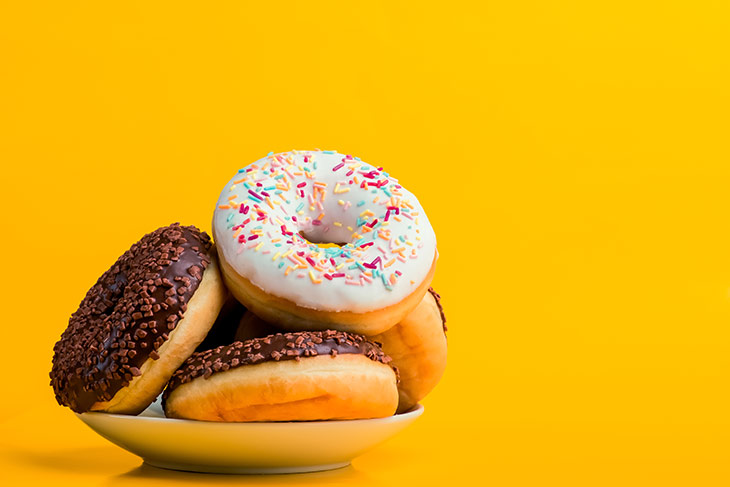6 tips to kill your cravings

Do you crave sweet or salty foods? Most people experience food cravings from time to time, but some are better at dealing with them than others. Next time you’re stressed or tired and a craving strikes, instead of relying on your willpower, try to outsmart your craving.
This week, Professor Manny Noakes, co-author of the CSIRO Total Wellbeing Diet books, offers six practical tips and tools on how to beat your cravings.
Are you trying to lose weight? Read our comprehensive guide on weight loss to understand where to begin, what happens when you lose weight, and what doesn't work when it comes to dieting.
1. Manage your stress levels
Food cravings can often arise when we’re stressed or anxious. Research published in the Journal for Obesity found that simple mindful eating and stress reduction techniques can help prevent unwanted weight gain.
Dr Noakes advises taking a walk outside or having a shower to help reduce the immediacy of a craving.
“The key is to remove yourself from the stressful situation that may cause you to eat."
2. Know your “triggers”
Your surrounding environment can have a big effect on your eating behaviour. According to research published in the Annual Review of Nutrition, visual cues such as food packaging, plate shape and socialising can lead to the unknowing overconsumption of food. By making a conscious choice to remove all temptations in your home and workplace, you won’t be able to eat them. In short, out of sight, out of mind.
But what if there’s some birthday cake at work? Dr Noakes advises that you learn how to say no. “While it’s easier said than done, you need to be black and white about what you can or can’t eat. Reinforcing your good habits can actually help you reduce your cravings over time.”
3. Don’t go hungry
Typically, if you’re eating higher protein and low GI meals during the day, such as the dishes on the CSIRO Total Wellbeing Diet, you’re less likely feel the need to eat between meals. According to Dr Noakes, this is because, “Protein-packed foods make you feel fuller for longer. But if you have a high carbohydrate meal with virtually no protein, it’s a recipe for hunger and cravings which will lead to disaster.”
4. Get enough sleep
Insufficient sleep can suppress leptin, the hormone that gives off signals to your brain that you’re feeling full, according to research published in PLOS Medicine. So when you’re sleep deprived, it can be all too easy to grab that extra cup of coffee or a doughnut for a shot of energy. But by getting around seven to eight hours of sleep every night, you can better control your appetite, feel more energised and reduce your risk of weight gain.
5. Allow yourself to indulge
On the CSIRO Total Wellbeing Diet, we understand that cravings are inevitable, which is why you can eat one indulgence per day. This small allowance ensures that you can enjoy some guilty pleasures while still maintaining a high quality diet on a weight loss plan. Again, the portion size of your indulgences is important. This can include one scoop of ice-cream or one chocolate biscuit.
6. Plan around social occasions
If you know there’ll be a party or event coming up, it’s important to plan ahead. Ensure you are eating some form of protein with your meals so you’ll feel full and have less room for treats when the occasion arises, and remember that alcohol adds to your total kilojoule intake but doesn’t satisfy your appetite or add any essential nutrients in your diet.
Did you know our Fast Start Shakes help curb carvings. CSIRO conducted a study to explore alternative ways they could better curb their cravings and 80% of people reported feeling better at controlling their cravings after 3 weeks of using the Fast Start meal replacements. Learn more.
